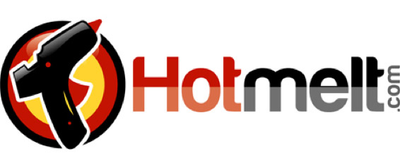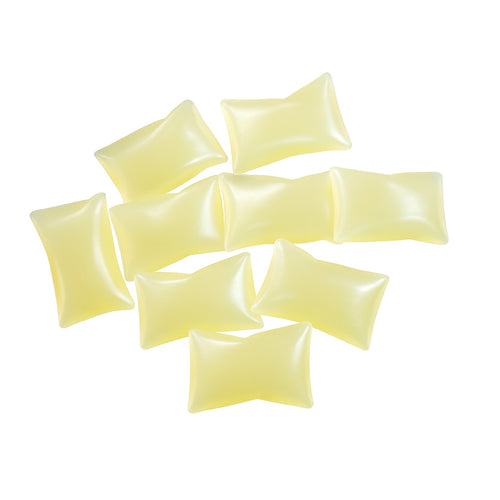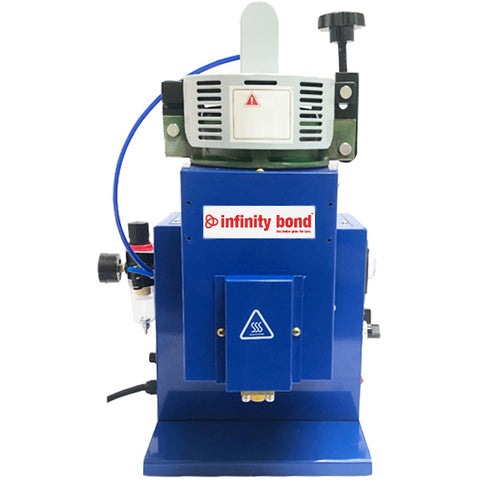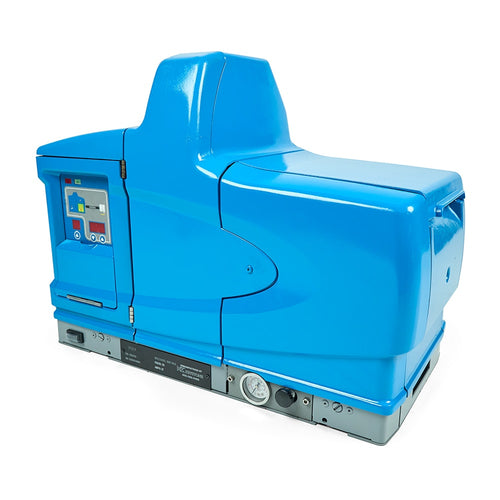October 20, 2025
If you are looking for a temporary bond that releases cleanly, fugitive glue is likely the way to go. Fugitive adhesives provide the holding power needed for production and shipping without leaving residue or damaging materials.
In this guide, we cover everything you need to know about fugitive glue, including:
- What It Is
- How Fugitive Glue Works
- Applications
- Fugitive Glue vs. Permanent Adhesives
- Choosing a Fugitive Glue
- Fugitive Glues to Try
- Dispensing Fugitive Adhesive Glue
- FAQs
What Is Fugitive Glue?
Fugitive glue, also called booger glue, credit card glue, or sometimes gummy glue, is a type of low-tack, removable adhesive that produces a non-permanent bond. This temporary bond is made to hold two pieces of material together, usually until the product makes it to the consumer. Fugitive adhesive glue is designed to then release cleanly without leaving behind any residue or causing damage to the substrates.
Fugitive glues are typically made of synthetic rubber or acrylic-based polymers with tackifiers and stabilizers. The exact composition varies from product to product, but the general chemistry allows fugitive glues to remain flexible and elastic.
There are several advantages of fugitive glue, including:
-
Clean removal: Leaves no sticky residue behind and doesn't cause surface damage
-
Versatile: Can be made with custom formulations for different tacks, cure times, or substrates
-
Automation-ready: Compatible with both hot melt and cold glue dispensing systems
-
Eco-friendly options: Available in solvent-free and recyclable formulations
How Fugitive Glue Works
Fugitive glue functions as a pressure-sensitive adhesive (PSA) with a controlled tack. Unlike permanent adhesives, fugitive glues work through physical adhesion instead of forming chemical or mechanical bonds.
When the fugitive adhesive glue is applied to a substrate, it usually needs a small amount of pressure to grip the surface and hold the materials together. Once applied, the adhesive never fully cures or hardens. This design allows the bonded items to be separated cleanly.
Applications of Fugitive Glues
Because they have such a unique property, there are several niche applications for fugitive glues, especially in packaging, marketing, and product assembly.
Common fugitive glue applications include:
-
Direct mail and marketing: Attaching promotional cards, samples, or coupons to mailers
-
Product packaging: Securing inserts or holding components in place during shipping
-
Retail or promotional displays: Mounting promotional materials that need to be removed later
-
Manufacturing or assembly processes: Temporarily holding materials together during production or testing
Fugitive glues tend to perform best on smooth, non-porous surfaces.
Fugitive Glue vs. Permanent Adhesives
Permanent adhesives are a common choice for many applications, but fugitive glues are unique. We highlight some of the key differences between fugitive glues and permanent adhesives.
|
Feature |
Fugitive Glue |
Permanent Adhesives |
|
|
Bond Strength |
Temporary / Light tack |
Strong / Permanent |
|
|
Residue |
None or minimal |
Often leaves residue |
|
|
Common Uses |
Removable packaging, mailers |
Product assembly, sealing, long-term bonding |
|
|
Curing |
Does not fully cure |
Fully cures for permanent bonds |
Choosing a Fugitive Glue
If you know you need a fugitive glue, the next step is choosing the right one. Selecting the right fugitive glue is critical to ensuring your materials stay in place during use but release cleanly when required.
When selecting a fugitive glue, you should consider:
- Substrate materials
- Application method
- Production process
- Viscosity
- Tack level
- Environmental conditions
- Regulatory requirements
By carefully evaluating these factors, you are more likely to find a fugitive glue that will help you get consistent and effective results.
Fugitive Glues to Try
Because there are so many different types of fugitive glues available for purchase, it can be hard to know which product is right for you, even when you take all of these factors into consideration. To help, our team of adhesive experts highlights a few high-quality and reliable fugitive glues from ASURE that you may want to try for your application.
|
Product |
Tack Level |
Key Traits |
Ideal Substrates |
|
Low |
Clear, lower viscosity, prone to stain |
Supercalendared and low basis weight paper
|
|
|
Medium/Low |
Water-white clear, moderate to light stain |
UV and AQ coatings that do not contain silicone |
|
|
Medium |
Amber, low staining |
UV or aqueous coatings or surfaces with a dyne of 40+ |
|
|
Medium/High |
Clear, low staining |
UV and AQ coatings or surfaces with a dyne below 40 |
|
|
High/Aggressive |
Yellow, low stain |
Untreated plastics and metal |
Dispensing Fugitive Adhesive Glues
In automated applications, fugitive glue can be dispensed using cold glue or hot melt systems, depending on viscosity and line requirements. Once dispensed, it sets quickly, so it is ideal for high-speed, automated lines.
For simple, low-cost, and hands-free dispensing, the Infinity Bond Easy Melt benchtop system is an excellent choice for bulk fugitive adhesives. It features a foot pedal, a variety of nozzles, built-in shot timing, and temperature control between 120 and 430 degrees Fahrenheit.
Of course, every production process is different. Factors like line speed, part geometry, material type, and curing time all influence adhesive performance. The best results come from using equipment that is compatible with your specific needs.
Ready to Get Started?
Whether you have general questions or are looking for product recommendations from our collection of fugitive glues or compatible dispensing equipment, we want to help. Contact us, and one of our knowledgeable team members will be happy to assist you and find the best solution for your fugitive glue needs.












